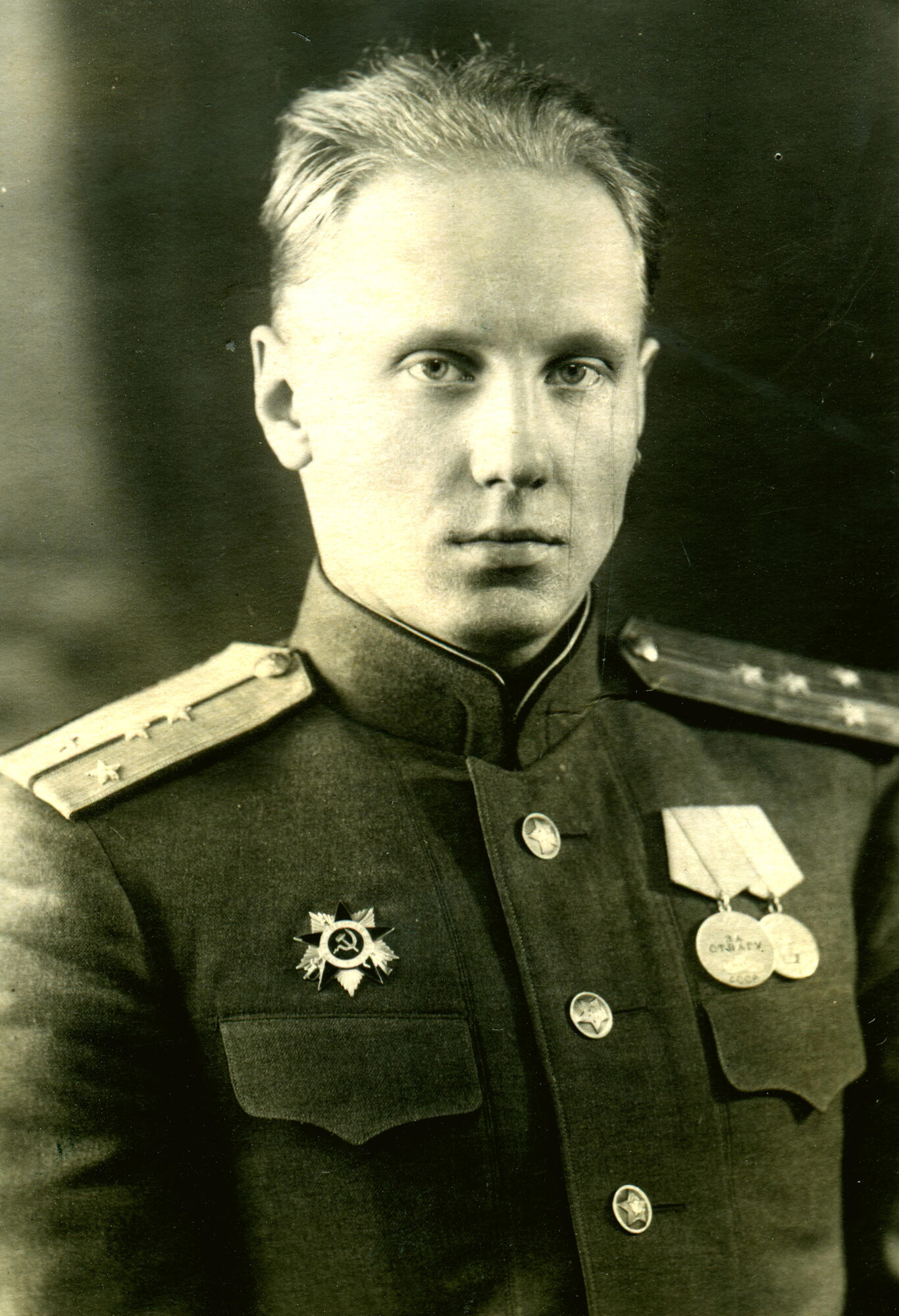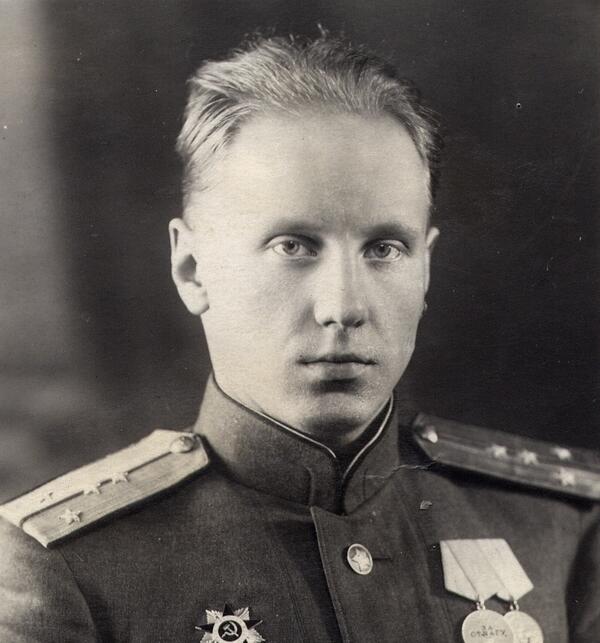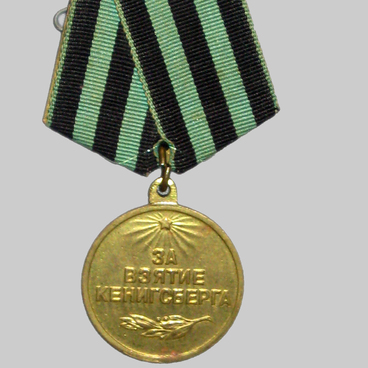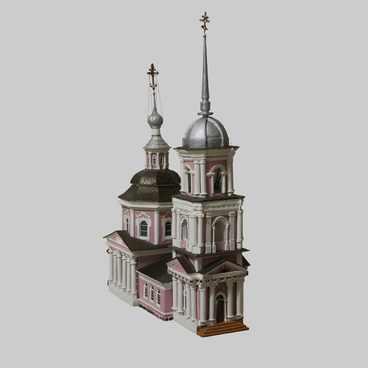The photograph shows Boris Pidemskiy, a Soviet military counterintelligence officer who participated in the Great Patriotic War. He was born on January 7, 1918 in PetropAvlovskoye village, Kirillovsk District of Novgorod Governorate. Today the native village of Pidemskiy is called CharOzero. At the age of seven, Pidemskiy moved with his parents to the village of MegrA, and then to BelozErsk. In Belozersk he graduated from a seven-year school. In 1934, Boris Pidemskiy enrolled in the CherepovEts Medical College and graduated in 1937.
At the same time, he studied at the flight training and gliding school of the Defense Support, Aviation and Chemical Construction at the ‘House of Defense’. After the technical school, Pidemskiy was drafted into the army, in the General Directorate of Air Defense of the Red Army. After a short internship at the Red Army Military Medical Academy named after S.M. Kirov, Boris Pidemskiy was appointed to the position of medical assistant in the detachment of border guards on the border with Estonia. The following year he was promoted to the rank of military paramedic and transferred to the 51st OktyAbrsky Regiment for the protection of railway structures on the Leningrad-Novgorod line.
When the Soviet-Finnish War broke out, Pidemskiy was appointed to head the pharmacy of the 100th Regiment of the 2nd Railway Division in the city of Viipuri.
During the Great Patriotic War, he served in the special department of the Northern Front. During the operation to move an agent to the rear of the enemy, he was wounded, but after recovery continued to work.
In October 1941, he was sent to the Leningrad Front, where he participated in the crossing of the Nevskaya Dubrovka railway station in the area of NEvskaya DubrOvka, was wounded and shell-shocked in the battles, but after the hospital he continued to serve in the blockaded Leningrad, then in the Military Counterintelligence Agency SMERSH Leningrad Front. The photograph from the collection of the Belozersky Regional Museum of Local History was taken during the war, in 1943.
Pidemskiy served in the armed forces for 27 years, and after his dismissal to the reserve he headed the Leningrad branch of the publishing house ‘Soviet Artist’. In 1968 Boris Pidemskiy headed the Leningrad publishing house ‘Aurora’, which published books on Russian art and culture in 11 foreign languages.
At the same time, he studied at the flight training and gliding school of the Defense Support, Aviation and Chemical Construction at the ‘House of Defense’. After the technical school, Pidemskiy was drafted into the army, in the General Directorate of Air Defense of the Red Army. After a short internship at the Red Army Military Medical Academy named after S.M. Kirov, Boris Pidemskiy was appointed to the position of medical assistant in the detachment of border guards on the border with Estonia. The following year he was promoted to the rank of military paramedic and transferred to the 51st OktyAbrsky Regiment for the protection of railway structures on the Leningrad-Novgorod line.
When the Soviet-Finnish War broke out, Pidemskiy was appointed to head the pharmacy of the 100th Regiment of the 2nd Railway Division in the city of Viipuri.
During the Great Patriotic War, he served in the special department of the Northern Front. During the operation to move an agent to the rear of the enemy, he was wounded, but after recovery continued to work.
In October 1941, he was sent to the Leningrad Front, where he participated in the crossing of the Nevskaya Dubrovka railway station in the area of NEvskaya DubrOvka, was wounded and shell-shocked in the battles, but after the hospital he continued to serve in the blockaded Leningrad, then in the Military Counterintelligence Agency SMERSH Leningrad Front. The photograph from the collection of the Belozersky Regional Museum of Local History was taken during the war, in 1943.
Pidemskiy served in the armed forces for 27 years, and after his dismissal to the reserve he headed the Leningrad branch of the publishing house ‘Soviet Artist’. In 1968 Boris Pidemskiy headed the Leningrad publishing house ‘Aurora’, which published books on Russian art and culture in 11 foreign languages.



